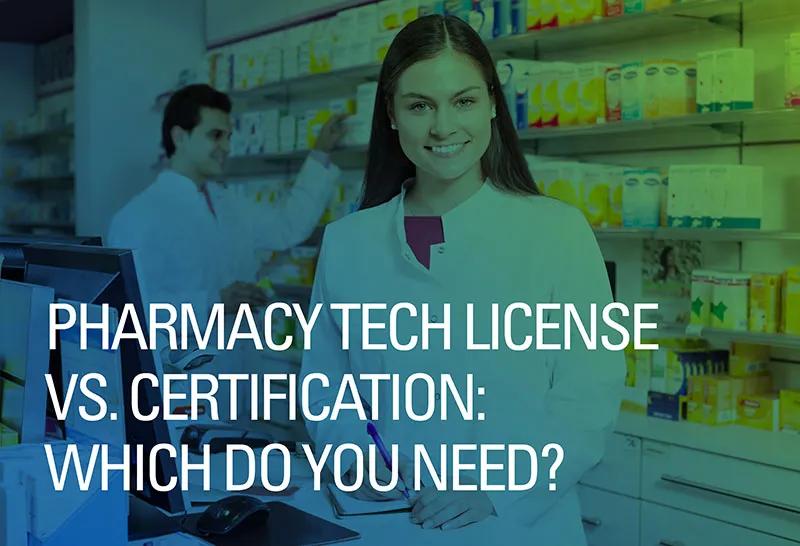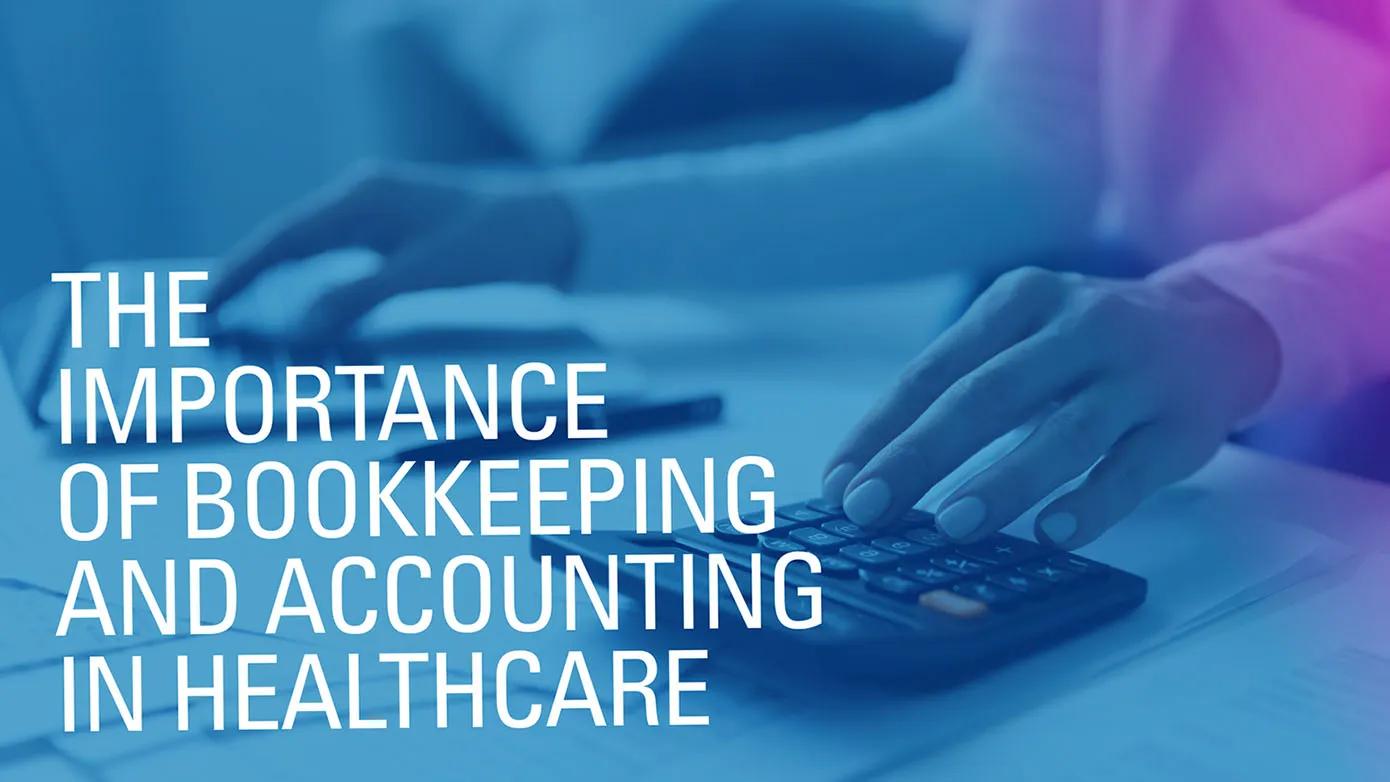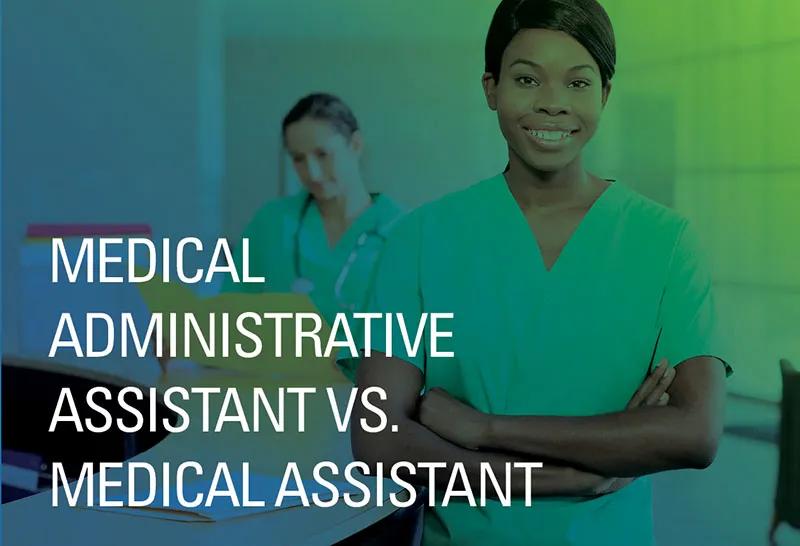Understanding the Difference Between a Licensed and Certified Pharmacy Technician

Working in a pharmacy can be a satisfying healthcare role where moments of compassionate patient care and customer service come together in a growing field.1 In fact, roughly 16,600 new pharmacy tech positions are projected to be added between 2020 and 2030.2 If you’re interested in filling one of these roles, you may have questions about licensing and certification. Maybe you’re wondering what the difference is between the two designations, or you’re not sure whether you need either to work in a pharmacy technician position.
At Ultimate Medical Academy (UMA), we understand that it’s important to answer questions such as these so you can make the right career decisions for you. In this case, this begins with outlining what it means to be a certified and/or licensed pharmacy tech.
What It Means to Be a Certified Pharmacy Technician
To earn the designation of certified pharmacy tech (CPhT), you must pass an exam and meet eligibility requirements to sit for the exam. The pharmacy technician certification exam tests your knowledge and skills related to typical pharm tech job duties and functions. This includes those related to dispensing prescription medications, organizing inventory, and providing customer service.
Earning a passing score on this exam means that you have met the certifying agency’s minimum level of proficiency to work in this role, earning you the title of certified pharmacy technician.
Two agencies currently offer pharmacy technician certification. They are the Pharmacy Technician Certification Board and the National Healthcareer Association.
Certification Through the Pharmacy Technician Certification Board (PTCB)
The Pharmacy Technician Certification Board has certified more than 732,000 pharmacy technicians.3 To be eligible for PTCB certification, you must have completed a training program recognized by the PTCB or have at least 500 hours of experience in this role.
Educational training programs, such as UMA’s Health Sciences – Pharmacy Technician associate degree program, can help you learn the skills necessary to work in a pharmacy tech position. This includes learning about dosage calculations, medication dispensing, drug interactions, medical terminology, and more.
The PTCB also requires that certification exam applicants disclose any criminal actions and State Board of Pharmacy violations. If these necessary qualifications are met and the applicant is approved, they can then be scheduled to take the Pharmacy Technician Certification Exam (PTCE).
The PTCB’s certification exam is administered via computer at a Pearson VUE testing center and consists of 90 multiple-choice questions. It takes approximately two hours to complete. The PTCB’s CPhT exam covers the following topics:4
- Medications – 40% of the exam
- Federal requirements – 12.5% of the exam
- Patient safety and quality assurance – 26.25% of the exam
- Order entry and processing – 21.25% of the exam
Certification Through the National Healthcareer Association (NHA)
The National Healthcareer Association also offers certification. To earn this designation, candidates must qualify for and pass the agency’s Exam for the Certification of Pharmacy Technicians (ExCPT).
Eligibility requirements for the ExCPT include having a high school diploma. Applicants must also have completed a pharmacy technician training program within the past five years or have a minimum of one year and 1,200 hours of experience of supervised pharmacy work.
The NHA allows applicants to select the date and location for their pharmacy technician certification online or in person. The exam consists of 100 questions and takes roughly two hours and 10 minutes to complete. It covers:5
- Overview and laws – 25% of the exam
- Drugs and drug therapy – 15% of the exam
- Dispensing process – 45% of the exam
- Medication safety and quality assurance – 15% of the exam
Now that you have a better understanding of what it means to be certified and certified pharmacy technician requirements, let’s talk a bit about licensure.
What It Means to Be a Licensed Pharmacy Technician
A licensed pharmacy technician is someone who is registered to fill this role within the state in which they work. Licensing requirements can vary by state and is provided by each state’s governing body. In some states, this governing body is the Board of Pharmacy. In others, the licensing process is handled by the Department of Consumer Protection, Division of Consumer Affairs, or a similar department.
For example, in Florida, licensing is regulated by the Florida Board of Pharmacy. To qualify for a pharmacy technician license in Florida, applicants must be at least 17 years old and have completed a board-approved training program. The applicant must also submit required documentation regarding any previous license-related disciplinary actions, mental health history, and criminal history.
If you want to be licensed in Michigan, this is governed by the state’s Department of Licensing and Regulatory Affairs (LARA). To apply, you must have graduated from high school or passed the GED exam. You also have to either submit the scores from your pharmacy technician certification exam or have been licensed in another state prior to applying for a Michigan pharm tech license. Additional requirements include passing a criminal background check, having good moral character, and completing human trafficking training, among a few others.
The National Association of Boards of Pharmacy provides an interactive map to help you locate the regulatory agency for your state. It also includes a link to that agency’s website, their contact information, and even downloadable newsletters in PDF format.
The Differences, Simplified
One of the most basic differences between a pharmacy tech certification and license is what each signifies. If you are certified, it means that you have achieved a basic level of proficiency in pharmacy tech duties and functions. If you are licensed, it means that you have registered with your state and are allowed to practice as a pharmacy tech based on the necessary requirements, which can include not having any disciplinary actions against you in your field, not having a criminal history, and more.
If you’re still confused about the differences between a certified pharmacy tech and a licensed pharmacy tech, it may help to look at an example using a different profession. Imagine that you’re building a house. So, you need to find a contractor. If that contractor is certified, it means that they have the education and skills needed to build your home and they’ve taken a test to prove it. If that contractor is licensed, it means that they’ve registered with the state and the state has given them the approval to do this type of work.
Another difference is that, while some states may require you to be certified in order to be licensed, you do not need to be licensed to be certified. Some licensing agencies require applicants to prove that they have completed a training program and passed a certification test. However, neither the PTCB nor NHA requires applicants to be licensed to take the certification exam.
Where Pharm Tech Licenses and Certifications Meet
Though pharmacy technician licensing and certifications represent two very different things, they do share some common ground. For instance, both show that you’re serious about the pharm tech role.
If you take the time to earn your certification, it tells potential employers that you have undertaken the training and/or have the experience needed to fill a pharmacy technician position. If you obtain your license, it shows that you’ve taken the time to submit the necessary paperwork and that you’ve met the requirements of your state to provide services in this type of role.
A pharmacy tech license and pharmacy tech certification can also complement each other. While the certification represents a certain level of knowledge and skills, a license signifies that the state’s governing agency has given you their nod of approval. Each on its own can place you in better standing with a potential employer but, when combined, it can make you an even stronger job candidate.
Do You Need a License or Certification to Work as a Pharmacy Tech?
The Bureau of Labor Statistics reports that, while most states do regulate pharmacy technician jobs to a certain degree, certification and licensing may or may not be required.6 Therefore, it’s important to check with your individual state to learn whether certification or a license is required to work in a pharm tech role.
Even if it isn’t a mandated requirement, having the designation of a certified pharmacy technician or licensed pharmacy technician may make it easier to secure a position in this role as it would tell potential employers that you’ve achieved a minimum level of proficiency in the skills needed to fulfill pharm tech duties and functions and/or that you’ve fulfilled your state’s licensing requirements.
Ready to Pursue an Entry-Level Pharmacy Technician Role?
If you’re interested in pursuing a pharmacy technician position, UMA’s Health Sciences – Pharmacy Technician associate degree program can help prepare you for this type of role. This 61.5-credit hour program teaches you the skills needed to perform pharm tech job functions and includes instruction on topics such as pharmaceutical calculations, pharmacy tech computer applications, drug interactions, pharmacy ethics, and more.
This program also includes an externship which provides you the opportunity to practice what you’ve learned in a pharmaceutical setting. Not to mention, all UMA grads have direct access to our career services team, which can help you prepare your resume, sharpen your interview skills, and provide tips when conducting your job search. Contact us today to learn more or to enroll!
FAQs
- What does it mean to be a certified pharmacy tech? A certified pharmacy technician is someone who has passed a certification exam, indicating that they have a basic level of proficiency in pharmacy tech functions. This exam is administered by one of two certifying agencies: the Pharmacy Technician Certification Board (PTCB) or the National Healthcareer Association (NCA).
- What does it mean to be a licensed pharm tech? A licensed pharmacy technician is someone who has registered with the state’s regulatory agency and been given approval (or is licensed) to provide pharmacy tech services.
- What’s the difference between a pharmacy tech license and a pharmacy tech certification? Pharmacy technician certification means that you’ve passed a proficiency-type of exam while a pharmacy tech license means that the state has authorized you to perform pharm tech duties.
- Do I have to be certified to work as a pharmacy technician? Certification may or may not be required to work as a pharmacy technician. It’s important to check your state’s individual requirements, as well as checking with the prospective employer to learn whether they require certification to work for their healthcare facility.
- Do I have to be licensed to work as a pharmacy tech? Some states do require their pharmacy technicians to be licensed while others do not. Check with your state’s Board of Pharmacy or other governing agency to learn more about the requirements in your state.
1 U.S. Bureau of Labor Statistics. Occupational Outlook Handbook. Pharmacy Technicians. Summary. https://www.bls.gov/ooh/healthcare/pharmacy-technicians.htm#tab-1
2 U.S. Bureau of Labor Statistics. Occupational Outlook Handbook. Pharmacy Technicians. Summary. https://www.bls.gov/ooh/healthcare/pharmacy-technicians.htm#tab-1
3 PTCB. https://www.ptcb.org/
4 PTCB. Credentialing Guidelines and Requirements. https://www.ptcb.org/guidebook/ptce-content-outline
5 National Healthcareer Association. NHA Certified Pharmacy Technician (CPhT) Text Plan for the ExCPT Exam. https://info.nhanow.com/hubfs/Test%20Plans/nha-2016-excpt-test-plan.pdf
6 U.S. Bureau of Labor Statistics. Occupational Outlook Handbook. Pharmacy Technicians. How to Become a Pharmacy Technician. https://www.bls.gov/ooh/healthcare/pharmacy-technicians.htm#tab-4
Request Information
Talk with us. Start your journey.
Complete this form and we'll call you to explore options at UMA and answer your questions. We'll also email you info on how to get started. We're with you at every step!
Request Information
Talk with us. Start your journey.
Complete this form and we'll call you to explore options at UMA and answer your questions. We'll also email you info on how to get started. We're with you at every step!
About the Author
 Adam Fenster
Adam FensterAdam Fenster is a senior copywriter at Ultimate Medical Academy, with journalism experience from his time as a reporter and editor for multiple online and print publications. Adam has been covering healthcare education since 2019, with an emphasis on topics such as wellness, healthcare employment, and job preparedness. He received his BA in journalism from the University of South Florida.
Related Content


